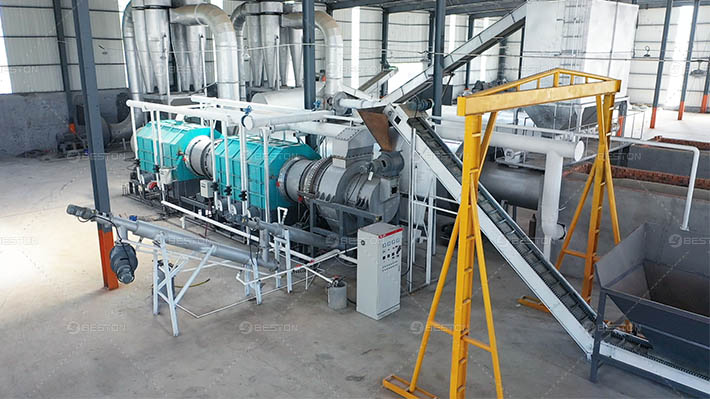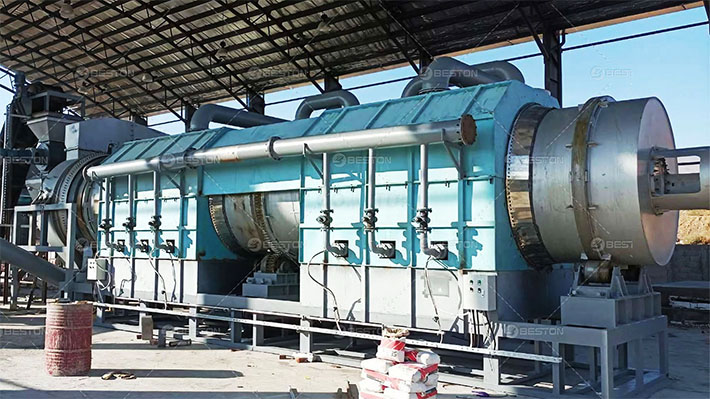In the realm of sustainable resource utilization, the utilization of sugarcane bagasse holds immense promise, particularly in the context of the sugar industry. With the advent of advanced technologies such as sugarcane bagasse charcoal making machines, the sugar industry can unlock numerous benefits ranging from waste reduction to revenue generation. In this comprehensive analysis, we explore the multifaceted advantages of integrating sugarcane bagasse charcoal making machines into the operations of the sugar industry, paving the way for economic prosperity and environmental stewardship.

Waste Reduction and Resource Utilization
Sugarcane bagasse, the fibrous residue left behind after extracting juice from sugarcane, is a significant byproduct of the sugar manufacturing process. Traditionally considered waste material, sugarcane bagasse poses disposal challenges for sugar mills and contributes to environmental pollution. However, with the utilization of sugarcane bagasse charcoal making machine, this agricultural residue can be converted into valuable charcoal products, thereby reducing waste and maximizing resource utilization.
Economic Viability and Revenue Generation
One of the primary benefits of sugarcane bagasse charcoal making machines for the sugar industry is their potential to generate additional revenue streams. By converting sugarcane bagasse into charcoal products, sugar mills can diversify their product offerings and tap into lucrative markets such as the energy sector, barbecue industry, and industrial applications. This not only enhances the economic viability of sugar mills but also creates employment opportunities and stimulates local economies.
Energy Independence and Sustainability
The utilization of charcoal produced from sugarcane bagasse offers a sustainable alternative to traditional fossil fuels such as coal and wood. Charcoal derived from sugarcane bagasse is renewable, carbon-neutral, and emits lower levels of greenhouse gases compared to conventional fuels. By incorporating sugarcane bagasse charcoal machine into the operations, sugar mills can achieve energy independence, reduce their carbon footprint, and contribute to mitigating climate change.
Soil Amendment and Agricultural Benefits
Sugarcane bagasse charcoal, also known as biochar, has proven agricultural benefits when used as a soil amendment. Biochar improves soil fertility, enhances water retention, and promotes nutrient cycling, thereby boosting crop yields and agricultural productivity. By producing biochar from sugarcane bagasse, sugar mills can not only enhance the sustainability of their own agricultural operations but also provide a valuable input for local farmers, fostering agricultural development and food security.
Carbon Sequestration and Climate Change Mitigation
The production of charcoal from sugarcane bagasse plays a vital role in carbon sequestration and climate change mitigation. By converting carbon-rich sugarcane bagasse into stable charcoal products, sugarcane bagasse charcoal making machines effectively remove carbon from the atmosphere and store it in a long-term, inert form. This helps offset carbon emissions from other sources and contributes to global efforts to combat climate change and achieve carbon neutrality. If you would like to inquire more about carbon sinks, please contact Beston Group Co., Ltd.
Environmental Compliance and Regulatory Benefits
In addition to the economic and environmental benefits, the adoption of sugarcane bagasse charcoal making machines offers regulatory compliance advantages for the sugar industry. Many countries and regions have stringent regulations governing waste management and air quality, mandating the reduction of organic waste and emissions from industrial operations. By investing in sugarcane bagasse charcoal production machinery, sugar mills can align with regulatory requirements, minimize environmental impact, and enhance their reputation as responsible corporate citizens.
Technological Advancements and Operational Efficiency
Recent advancements in sugarcane bagasse charcoal making machines have improved their efficiency, reliability, and ease of operation. Modern charcoal making machines employ advanced pyrolysis technology to convert sugarcane bagasse into charcoal with high yields and minimal energy consumption. Automated controls, process monitoring systems, and integrated safety features further enhance operational efficiency and ensure consistent product quality, making sugarcane bagasse charcoal making machines an attractive investment for sugar mills.

Conclusion
In conclusion, the integration of sugarcane bagasse charcoal making machines into the operations of the sugar industry offers a multitude of benefits spanning waste reduction, revenue generation, energy independence, soil amendment, carbon sequestration, regulatory compliance, and technological advancement. By harnessing the potential of sugarcane bagasse as a renewable feedstock for charcoal production, sugar mills can enhance their sustainability, profitability, and resilience in a rapidly evolving market landscape. As the demand for sustainable solutions continues to rise, sugarcane bagasse charcoal making machines stand poised to revolutionize the sugar industry, ushering in a new era of economic prosperity and environmental stewardship.